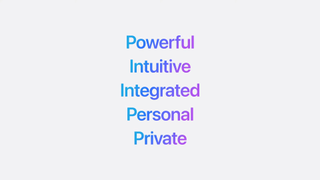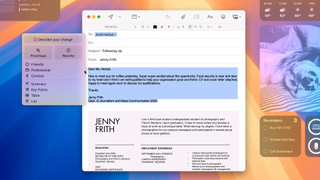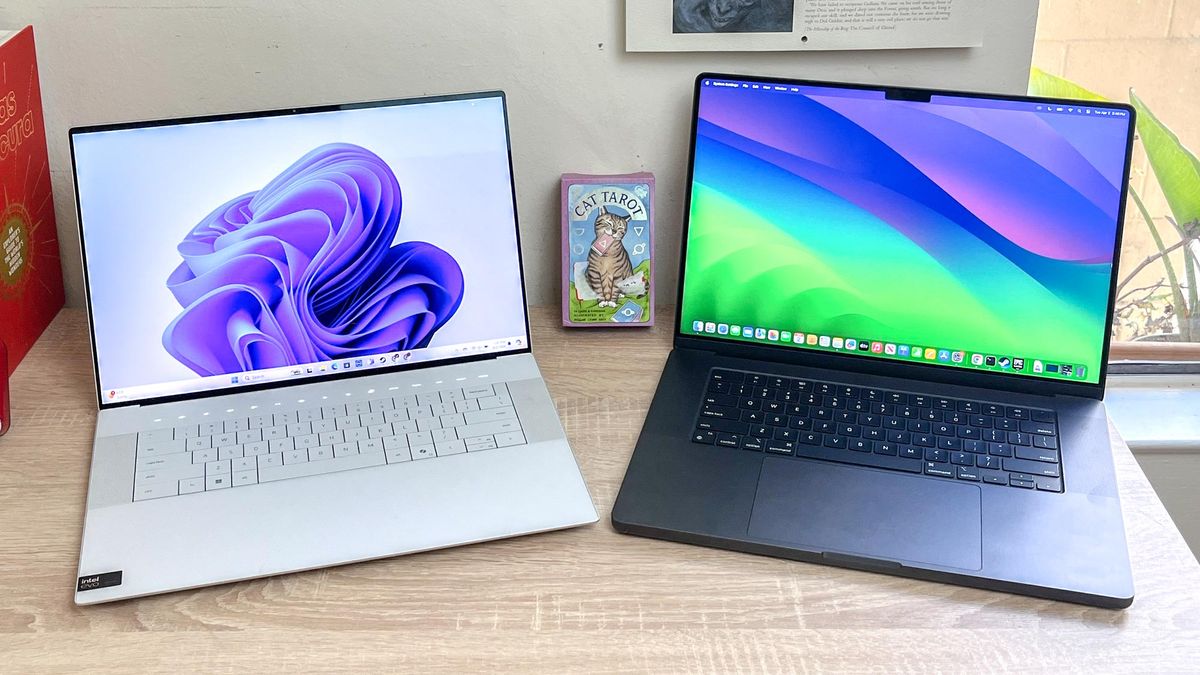I’ve been a lifelong Windows user, but Microsoft’s foolish push to shove AI into everything is starting to make me feel like I need to bite the bullet and switch to Macs.
I grew up using Windows PCs almost exclusively, so I’ve never felt completely at home with macOS. And while Windows 11 has its weaknesses, on balance I think Microsoft has done a good job of maintaining and improving it since it debuted in 2021.
But after attending WWDC 2024 and hearing Apple talk about AI and privacy the way I wish Microsoft would, I’m sorely tempted to go all-in on macOS Sequoia when it debuts later this year.
Granted, this has a lot more to do with Microsoft’s relentless efforts to integrate “AI” into everything it sells than it does with how much I like Apple products. I carry an iPhone because I used to write about games and Apple’s App Store was the place to be if you were a mobile game developer, but other than that I generally don’t get on with Apple’s design philosophies. Too often I feel like I can’t adjust or control an important aspect of my device because Apple hasn’t given me that option, and I hate that feeling.
But I’m starting to hate Windows Copilot even more and all the ways it infiltrates my PC. I’ve been using various forms of “AI” since Microsoft rolled out Bing with ChatGPT in 2023, and I haven’t yet found a compelling reason to use any of them other than to fill the internet with crap data.
While Microsoft keeps harping on how Copilot integration will make you more productive, I’ve only seen it do Bing things for me or haphazardly summarize or rewrite text. Oh, and it can generate images that are fun to drop by in chat for a laugh, but aren’t actually useful for anything because they clearly look like they were generated by AI.
Admittedly, this technology is still in its infancy and both companies still have a lot of time to hang themselves as they integrate AI into their operating systems. But with Apple getting off to a late start in this particular phase of the AI race, I’m drawn to Apple Intelligence’s privacy-focused marketing.
For my PC to work for me, I have to trust it

In fact, Apple is making privacy such a key pillar of its 2024 marketing that it issued a press release highlighting all the ways its new operating systems respect user privacy. Sure, it’s a press release intended to make Apple look good, but it’s the kind of announcement that Microsoft hasn’t made — and probably couldn’t without seriously overhauling its data infrastructure.
For example, when Siri gets its big makeover with iOS 18, it will be integrated with ChatGPT-4o and supposedly be able to handle much more complex requests than it can now, like being able to see apps on your device and take actions of actions therein. to fulfill your requests. For example, at WWDC we saw Apple demonstrate how you can ask the new Siri to find photos of a specific person and location and then ask Apple’s AI assistant to edit them to make them really stand out.
Apple says the new Siri will always try to do whatever processing is necessary to fulfill your requests on the device, so you know your requests and images won’t be sent anywhere or seen by anyone. But if Siri decides it needs more processing power to fulfill your request, it can call Apple’s servers for extra horsepower.
Those servers are Apple’s Privacy Cloud Compute servers, which run on Apple silicon and therefore have the same security features as your iPhone or MacBook, such as Secure Enclave and Secure Boot. Apple promises that your data will not be visible to anyone (including Apple employees) on these servers and that the data will be deleted immediately after your request is fulfilled. Apple has also promised that “independent experts” can inspect the code running these Privacy Could Compute servers and verify that the claims are true.
But if it decides it needs to use ChatGPT-4o, Siri will ask for your permission to send your request and/or images/documents to ChatGPT before this happens. That’s such a small step in the process, but it gives me so much peace of mind because it reminds me that I’m sending my personal information to a third-party server for processing.
Compare that to Microsoft’s position on AI, which seems to be that you should just integrate it seamlessly with everything you do on your PC. Even if I was comfortable with that, I’m completely uncomfortable with how little Microsoft seems to value user privacy. Although the company has published a guide on how Copilot uses your data, it clearly states that you will have to pay to keep your data safe.
Although the basic version of Copilot, which is available for free to Windows users, has a setting that lets you enable or disable the ability to read data from Microsoft Edge, that’s the only control you have over your privacy. To really ensure that the requests and data you send to Copilot are private and not shared with anyone, you’ll need to pay $30 per month for a Copilot for Microsoft 365 subscription.
So if you’re a paying Microsoft customer, you’ll see the “your personal and company information is protected in this chat” warning when you use Copilot. If you don’t see this warning, your data is not protected.
And honestly, I just don’t trust Microsoft not to give my data to advertising companies or other data-driven businesses. The company is clearly very comfortable with selling user data to advertisers, as you can see if you happen to be in the EU or UK and using the Outlook app.
That’s because Microsoft has added options in certain regions that allow users to opt out of the sale of their data to third parties, presumably due to regulatory pressure. I recently asked my British colleague to show me what options he has to disable Outlook data sharing with advertisers, and he sent a huge list that appears to contain at least 100 entries or more.

It’s quite a list, and it includes promising advertising partners like A Million Ads and Bytedance, two companies I’m not really interested in sharing data with. Of course, since I live in the US, I don’t have an easy option to disable data sharing with them if I were to use Outlook.
And that’s actually why I’m starting to seriously dislike Microsoft’s AI efforts. It feels like the company wants me to let Copilot do my work for me, but I can’t do that if I don’t trust it. I already don’t trust modern AI chatbots to properly write text or generate images, and now I see Microsoft locking up its best AI tools with the utmost respect for users behind paywalls. How can I trust this company not to sell my data to advertisers for a quick buck when real data privacy costs $30 a month?
Apple, on the other hand, seems to be making a strong case for integrating AI into everyday life by effectively promising that it won’t try to make money from Apple Intelligence. Instead, it appears that Apple’s AI efforts are helping to make Siri the virtual assistant it always promised to be, and improve features like Spotlight Search and dictation in Notes.

So while I still feel as uncomfortable as ever when I let the robots write my emails for me, I like that in macOS Sequoia I can at least override that feature and it doesn’t constantly ask me to use text generation, unlike Google Chrome and Gmail.
Outlook
Overall, it feels like Apple’s privacy-focused approach to integrating AI into its products is the best I’ve seen from a major tech company yet.
While Apple may be reacting to competitors and being seen as a laggard when it comes to AI, that is actually very reassuring to me as a customer. It’s been, honestly, a little scary to see how brazenly Microsoft has packed AI into all of its products in record time, and I think that rush to market will do more harm than good in the long run.
Heck, I didn’t even get around to mentioning the embarrassing privacy issues Microsoft faced last month around the debut of Recall, a new feature coming exclusively to Copilot+ PCs that lets you choose to let your PC photograph everything what you put on it.
The story is that Recall helps you look up something you did on your PC last week, but the problem is that Microsoft exposed it without adequate security. Now the company has had to quickly backtrack and release multiple updates on how Recall is being reworked to better protect your privacy, to the point that this main feature of Copilot+ has been delayed and will now not arrive on Copilot+ PCs until June 18.
So while I’ve loved Windows since I was a kid, Microsoft is making it harder and harder not to jump ship. I’d love to see Windows 12 (or whatever comes next) better protect user privacy and give you control over how your data is used by companies, but until I do, I’ll be practicing my macOS keyboard shortcuts and trying to feel comfortable with Sequoia.
